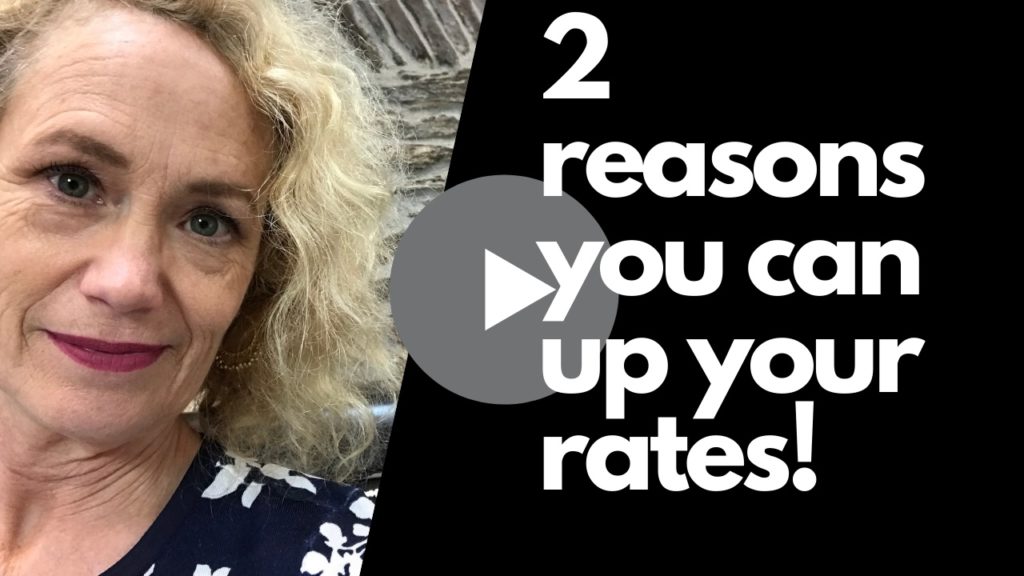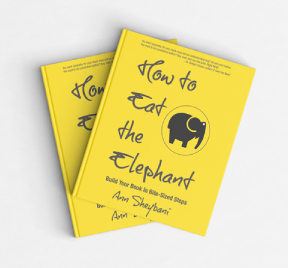Writing
Can I charge more if I have a book?
October 18, 2021
The other day, I was talking to a student enrolled in the Influential Author Formula. She asked, “Can I charge more money if I have a book?”
God, I love this question, which is why I’m going to share my answer right here.
Let’s come at this from two angles.
If you’re a service provider of some sort, a coach or a consultant, a health practitioner or professional, you are by your very nature a helper. I mean, unless you’re a devious sociopath, you likely wouldn’t have gone into a helping industry otherwise. The thing about helpers is that they (we, because, HELLO, I’m a dyed-in-the-wool helper) like nothing better than to….help.
As a helper, learning to charge for products and services can be challenging. If you’re female, which, last time I looked, I am, multiply that difficulty by ten. (Sure, I’m generalizing, but consider the statistics and the current rage against the patriarchy.)
The process of raising prices as we mature in business can be fraught with guilt, fear, and shame. Charge ten cents more and we fully expect a (potential) client to shriek:
- You selfish, selfish animal!
- You really think you’re worth all that?
- I know at least 10 experts who charge half what you do.
- You’re not afraid of burning in hell?
Yet, raise our prices we must, particularly when we begin to understand the value we bring to the table and the actual work involved. When we finally calculate our hourly rate after finishing a project and determine that working the grill at McDonald’s would have been far more profitable.
Fear of being found out for the greedy, delusional piece of dirt we are aside, there’s another problem with raising our prices.
As a helper, it’s hard to turn people in need away. That’s because people in need really, really need us. And people in need, or so we fear, generally can’t afford us.
The beautiful thing is that, instead of turning these nice needy people away like a rational human being, or dropping your already paltry rates, you can offer these individuals your book.
For $20 or so, they can benefit from your wisdom, without occupying 35,000 hours of your life. Sure, give them your book for free if it means preventing children from going hungry. No one’s expecting you to be a heartless savage.
Now, here’s the second angle.
Credibility is a funny thing. You don’t actually have to earn it to have it.
Just having a publication to your name will give you instant credibility, even if your book is composed of nothing but blank pages or one long series of telephone numbers. Even if you’ve slapped together some bean-dip recipes in a drug-addled haze.
Think about it: A real estate agent who drives a late model BMW will generally appear more credible than one who drives an ’86 hatchback. I mean, it’s a car, for God’s sake, but that’s how we humans roll.
As you probably know by now (or will, soon enough), I’m a huge fan of books that matter. A well-written book that speaks directly to your avatar’s urgent problem, one that’s full of stories to dramatize relevant lessons, will turn your readers into buyers. That’s because those readers will consume that kind of book, as opposed to gasp in horror. When they consume the book, they’re far more likely to take action.
This difference alone will help you make far more money. (Not to mention, impact.)
But we’re not talking about making more money; we’re talking about charging more money.
The thing about having credibility, earned or not, is that others magically assume you to be successful.
Credible=successful
You can quote me on that.
When enough people consider you to be successful, you’re far more likely to feel successful too. For the sake of congruency alone, you’re going to price your products and services accordingly.
Psychology aside, when you do the work to create a book that matters, that spells out your process, that supports your thoughts and hypothesis, you earn credibility. To get that stuff on the page requires clarity. That kind of clarity takes work to come by. The work most want to avoid is what will separate you from the herd.
When you put the work in, go the extra mile, will you content yourself with seedy-motel rates?
Sweet Jesus, I hope not.




